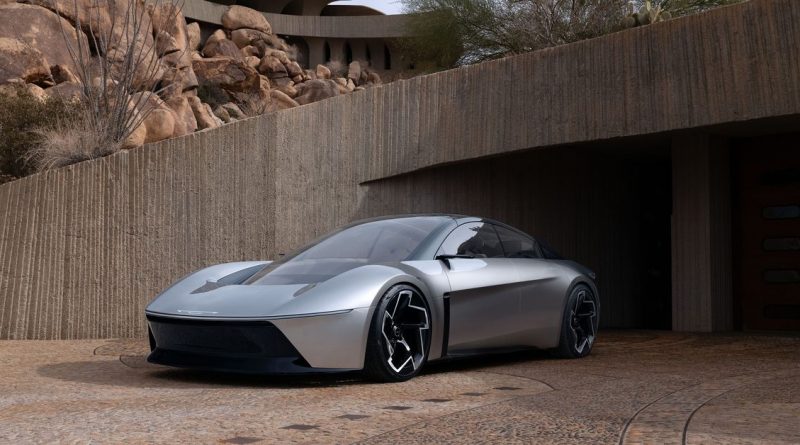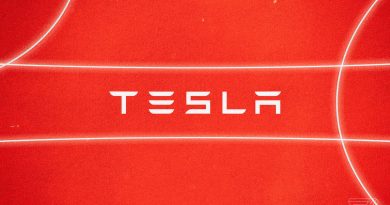Chrysler Halcyon concept is a reminder the company can be more than just minivans
Chrysler, on the cusp of turning 100 next year, used to make a variety of models but is now a brand mostly known for its Pacifica minivans. But today, the company is attempting to make a bold statement about its future by introducing a concept car that is about as far from a minivan as you can get.
The Chrysler Halcyon concept is a stunning, high-tech roadster with an electric powertrain and fully autonomous capabilities. And while the automaker doesn’t have any immediate plans to put it into production, the Halcyon is intended to demonstrate that the minivan company is doing more than just sitting around and thinking about, well, minivans.
Image: © 2024 Stellantis
“We want Chrysler to be advanced, for sure,” Christine Feuell, brand CEO for Chrysler, said in a briefing last month. “But we want to introduce technology and advanced experiences for real life, and not just as a science project.”
Chrysler has said it intends to only sell electric vehicles by the end of 2028, and the Halcyon is meant to serve as a demonstration for how the company will deploy future technologies. But it’s not a production-ready vehicle, lacking many relevant specs such as battery capacity, range, performance, and more. Think of it more like a full car version of the cockpit demonstrator that Chrysler released over a year ago at CES.
Image: © 2024 Stellantis
Halcyon combines a bunch of technologies under development at Chrysler’s parent company, Stellantis, including the STLA Brain operating system, the STLA AutoDrive driver assist, and the STLA SmartCockpit infotainment system. The Halcyon concept is designed to present all of those products together as one unified system.
The Halcyon is built on Stellantis’ STLA Large platform, which is one of the four platforms introduced during the automaker’s EV Day in 2021. (There’s STLA Small, STLA Medium, STLA Large, and STLA Frame.)
Riding extremely low to the ground — Chrysler says it will only have around four inches of ground clearance — the concept also features four doors that open outward, like French doors, or as Chrysler calls it, “red-carpet style.” A butterfly-hinged canopy on either side also provides more clearance for getting in and out of this extremely low-riding concept.
Image: © 2024 Stellantis
Image: © 2024 Stellantis
Image: © 2024 Stellantis
Image: © 2024 Stellantis
Chrysler is also using a lot of recycled materials for the interior, including the automaker’s wing logos constructed from crushed and recycled music CDs. Overall, the company says 95 percent of the interior is made from “sustainable” materials.
Naturally, artificial intelligence plays a prominent role in this concept, as does augmented reality and vehicle connectivity. That includes AI voice assistants, predictive navigation, and over-the-air software updates. The Chrysler Halcyon is a car that will know you based on your preferences and can preemptively make changes to things like the HVAC system when you get in the vehicle.
Image: © 2024 Stellantis
There are also plenty of visual and audio features designed to make you feel more comfortable by creating a zen-like environment. And when it’s in full autonomous mode, the steering yoke and pedals fold away to create a more comfortable seating arrangement.
This concept really leans into the idea that someday soon we’ll all be riding around in fully driverless vehicles that we own — a theory that has largely been debunked by experts. If and when we do get self-driving vehicles, they will all but certainly be fleet-owned vehicles deployed for commercial services, like delivery and robotaxis.
Image: © 2024 Stellantis
Still, Chrysler wants to be sure it’s ready for any autonomous future, so it’s tricking out the Halcyon accordingly. The concept (and possible future Chrysler vehicles) will come equipped with self-driving features, such as “a dimmable glass canopy and windshield that can turn opaque with seats laid back for a unique augmented-reality Stargazing Mode.” Sounds lovely.
In the briefing, Feuell acknowledged that Chrysler still has work to do before it can offer full autonomy to its customers. “The autonomous driving functionality obviously is pretty mature at Level 2 and Level 2 plus,” she said. “As we get into Level 3 and 4, there’s still a bit of development work that is needed to be done to be fully hands off, eyes off and still deliver on the safety requirements that we need to meet.”
Image: © 2024 Stellantis
Other futuristic and unproven features include “Dynamic Wireless Power Transfer (DWPT) technology to wirelessly recharge vehicle as it travels, allowing for unlimited range.” The idea is that while driving down roadways with inductive charging capability — again, not something that can be found anywhere today — the Halcyon will charge itself. Chrysler says the concept will have an 800-volt lithium-sulfur battery, which it argues has an estimated 60 percent lower carbon footprint than other EV batteries.
The Halcyon is a fun science project, but the real test will come in 2025, when Chrysler expects to reveal it’s first electric vehicle. The company has already shown off the Airflow SUV, which is a close-to-production-ready prototype that will likely serve as a basis for the future EV.
Image: © 2024 Stellantis
The company discontinued the Chrysler 300 sedan last year, leaving the Pacifica and Pacifica hybrid as its only remaining models. It sold around 133,000 minivans last year, making it among Stellantis’ lowest-performing brands. Whether that’s enough revenue to begin the expensive process of developing an all-electric lineup of vehicles will remain to be seen. But Feuell said the company is well positioned to achieve its goals.
“Look, I would always love to have more and faster,” she said. “We’ve improved the profitability of the brand significantly over the last two years. And that is helping to fund the new product development that you’ll see going forward.”



